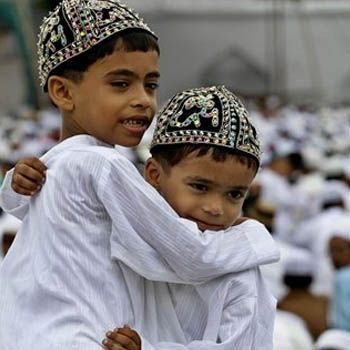
Eid al-Fitr is celebrated on the first day of the month of Shawwal. Muslims gather in Eidgahs (open spaces) and mosques to thank God for having enabled them to fulfil their Ramzan obligations — seeking of divine proximity through prayers, striving for moral discipline by conquering physical desires, and inculcating a sense of social commitment to the cause of the economically deprived.
As an expression of this solidarity, an obligatory aid, zakat al-fitr, is disbursed to the needy before the thanksgiving prayer to ensure that no person remains deprived of happiness on this day of Eid. Zakat al-fitr is not a charity but part of an Islamic entitlement programme promulgated through the last Prophet to alleviate hunger. Every Muslim household has to contribute, for each member, at least 3 kg of rice, wheat, barley or any other staple food.
Eid al-Fitr also marks the beginning of the 11-month break (fitr) from obligatory fasting with a pledge to put in practice all that was learnt during the 30-day conditioning period in which Muslims, apart from fasting, train themselves to diligently participate not just in the five compulsory prayers but also in the late-night prayers called taraawih.

The exercise is to understand the inclusive message of the divine Book through salah, soum and zakat (prayer, fasting, annual wealth tax), which are institutional means to establish the philanthropic order of Islam. The congregational prayers inculcate social equality and a sense of community, fasting sensitizes people to the misery of extreme poverty, andzakat helps finance socioeconomic development.
Once this humanitarian intent behind Islamic rituals is internalized, celebrating Eid al-Fitr becomes a different experience altogether.
BY HARSHVARDHAN SINGH.



0 Comments